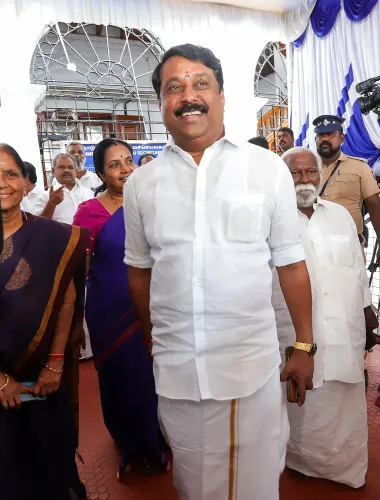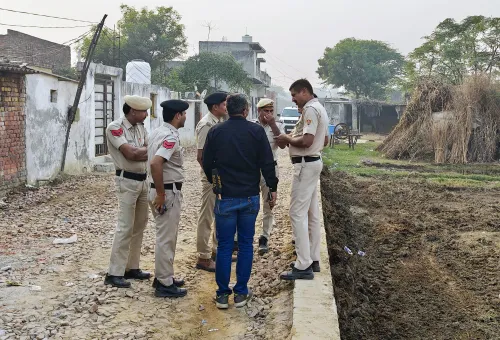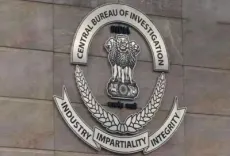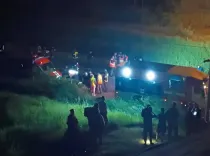Has the Patna CWC Meeting Exposed Modi's Government Failures?
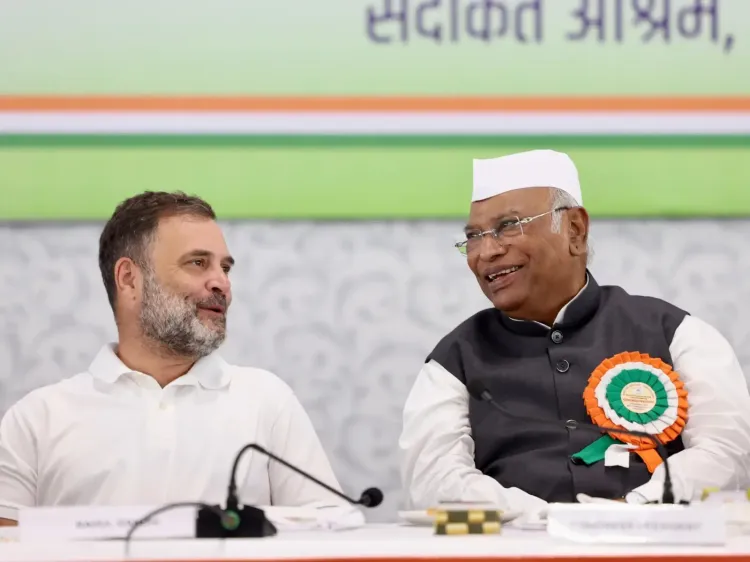
Synopsis
Key Takeaways
- Criticism of Modi government for economic mismanagement.
- Call for unity against religious polarization.
- Emphasis on the need for a caste census and transparency in reservations.
- Highlighting Bihar's economic challenges and unemployment issues.
- Historical references to reinforce democratic values.
Patna, Sep 24 (NationPress) Congress President Mallikarjun Kharge on Wednesday criticized the Modi government for its inadequate performance across various sectors, including domestic governance, economic management, international diplomacy, and democratic integrity.
During a forceful speech at the Congress Working Committee (CWC) meeting held at the historic Sadaqat Ashram in Patna, Kharge expressed his concerns about the current state of the nation.
He emphasized that Sadaqat Ashram symbolizes the Congress’ commitment to uphold India’s constitutional values, stating, “This CWC meeting is crucial as India is facing significant challenges at both international and national levels.”
Kharge accused the Modi government of damaging India’s global reputation and mishandling foreign affairs.
“Our international challenges stem from the diplomatic blunders committed by Modi and his administration. Even the so-called friends of the Prime Minister are now causing India various troubles,” he remarked.
He alleged a deliberate effort to manipulate voter lists, jeopardizing the Election Commission’s integrity.
“There are serious doubts regarding the Election Commission’s fairness and transparency. Instead of addressing these concerns, the EC is asking us for affidavits,” he stated, alerting that “vote theft” affects the rights of marginalized communities.
Drawing a historical reference, he mentioned the introduction of the Constituent Assembly proposal at the Ramgarh AICC session 85 years ago, which established the principle of “one person, one vote.”
Kharge criticized the government’s economic policy, highlighting unfulfilled job promises, increasing unemployment, ineffective demonetization, and a problematic GST that disrupted the economy, alongside record lows in rural consumption and escalating inequality.
“The Prime Minister expects citizens to spend more, but with stagnant incomes and rising inflation over the past decade, how is that possible? The rich are getting richer while the poor are getting poorer,” he noted.
He also pointed out the government's failure to fulfill its promise of doubling farmers’ incomes and recalled the protests against the now-repealed three farm laws, resulting in the tragic deaths of over 750 farmers.
Commenting on PM Modi's advocacy for Swadeshi, Kharge remarked, “While the PM recalls Mahatma Gandhi’s mantra of ‘Swadeshi’ that we used to combat British rule, he simultaneously welcomes China with open arms. Our imports from China have surged in the past five years.”
Kharge criticized both PM Modi and Bihar CM Nitish Kumar for neglecting the people of Bihar in terms of development, employment, governance, and social justice.
He opened his address by accusing the Modi government and BJP-led state administrations of exploiting religion to create divisions among communities.
“The central government under Modi, along with BJP state governments, consistently seeks to polarize communities along religious lines,” he asserted.
Addressing the NDA’s double engine claim, Kharge stated that Bihar’s economy remains stagnant despite the central government’s assurances of special assistance.
“The Nitish administration promised progress, yet Bihar’s economy continues to lag. The ‘double engine’ narrative has proven to be empty, with no special package from the centre,” he said.
He highlighted the alarming unemployment rate in Bihar, exceeding 15%, which drives millions of youths to migrate annually.
Kharge criticized the state for a recruitment scandal that has led to widespread protests and police responses.
He described the dire conditions faced by farmers in Bihar, who suffer from annual floods due to the government's failure in managing flood situations.
“The Prime Minister has repeatedly assured the revival of Bihar’s sugar industry, yet a decade has passed with no action taken,” he remarked.
Kharge suggested that the internal conflicts within the NDA coalition are now visible. “Nitish Kumar has been sidelined by the BJP, which now perceives him as a liability,” he claimed.
He emphasized the necessity for a nationwide caste census and greater transparency in Bihar’s reservation policies.
“With 80% of Bihar’s populace belonging to OBC, EBC, and SC/ST categories, the Congress Party and Rahul Gandhi compelled the central government to consent to a caste census,” he stated.
He questioned why the Modi administration has not granted constitutional safeguards to Bihar’s 65% reservation, recalling that a Congress-led government provided protection to Tamil Nadu’s 69% quota three decades ago.
Kharge criticized Uttar Pradesh’s Chief Minister Yogi Adityanath for his contradictory stance on reservations.
“He previously opposed reservations but has now prohibited caste-based protests. While we advocate for a caste census, your Chief Minister seeks to imprison those who protest against injustice,” he stated.
Kharge depicted a bleak scenario for Bihar’s governance, including rising crime rates, daily robberies and murders, a shortage of teachers in schools, and a deteriorating public health system that forces residents to seek medical treatment outside the state.
Concluding his address, Kharge urged the people of Bihar to reject religious division and support development-focused politics.
“The citizens of Bihar aspire for development, employment, social justice, and sound governance. They have long envisioned a ‘golden Bihar’, and together we will realize that dream. The 2025 Assembly elections will mark the start of the countdown to ending the Modi government’s corrupt rule,” he asserted.



